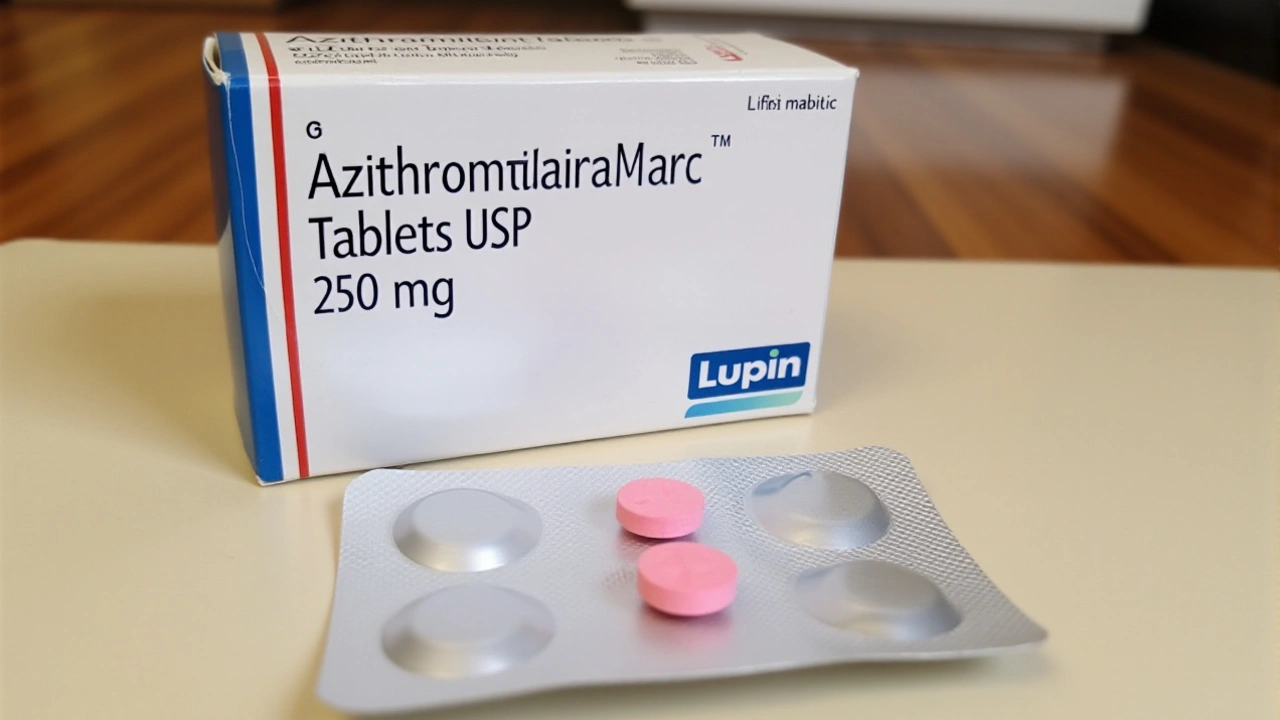August 2024 Archive - Azithromycin and Cardiovascular Risk
A new study found that people taking azithromycin outside hospitals had a small but measurable rise in deaths from heart causes. The increase looks modest at population level, yet it matters when you or someone you care for is prescribed this antibiotic.
Researchers compared death records for people using azithromycin with those using other antibiotics and with nonusers. They found higher rates of both cardiovascular and noncardiovascular deaths in the azithromycin group, though the absolute risk increase stayed low.
If you have existing heart disease, irregular heartbeat, or take drugs that affect QT interval, ask your doctor about safer choices. For most healthy people the chance of a serious event remains small, but shared decision making helps weigh benefits against rare risks.
Azithromycin can lengthen the heart's electrical recovery time, called QT prolongation, which can lead to dangerous rhythms in rare cases. Other factors like low potassium, other medicines, or dehydration make that risk higher.
What should you do if you need an antibiotic? Tell the prescriber about heart problems, fainting, palpitations, and a full list of current drugs - even over the counter supplements. Ask whether azithromycin is the best option or if an alternative like amoxicillin or doxycycline could work.
Researchers stress that relative increases can look large while absolute numbers stay small - a critical point for interpreting results. So a small added chance per thousand people can show as a noticeable percentage increase but still be rare for any single person.
At MyOTCStore.com we break down studies like this so you can ask smarter questions at the clinic or pharmacy. Our goal is practical advice - quick, clear, and focused on what to tell your provider if azithromycin is suggested.
Older adults and people taking certain heart or psychiatric drugs should be especially careful. If you already have a long QT diagnosis or take class I or III antiarrhythmics, doctors may avoid macrolide antibiotics.
Read our full post from August 2024 to see study details, numbers, and clinician comments so you get the context behind headlines. We summarize who was studied, how big the risk change was, and what practical steps clinicians suggest.
Don't panic if you've taken azithromycin - most people are fine - but check interactions and heart history with your provider. If symptoms like fainting, severe dizziness, or fast irregular heartbeat occur, seek urgent care.
Use our archive links to find the post and related drug safety articles from August 2024. Stay informed and ask questions - a few facts can change a treatment choice for the better.
We also note that antibiotics are often overprescribed for viral infections. If your condition is likely viral, ask if symptomatic care or delayed antibiotic prescribing is an option. For bacterial infections, timing matters - untreated infections can cause more harm than rare side effects. Bring a current medication list to appointments and mention supplements like magnesium or herbal remedies. That simple step helps clinicians pick the safest, most effective treatment. Stay curious and careful.

Azithromycin Linked to Increased Cardiovascular Mortality Risk: New Study Insights
- 11 Comments
- Aug, 17 2024
A recent study highlights that azithromycin use outside hospital settings is linked to a higher risk of cardiovascular and non-cardiovascular deaths. While the absolute risk remains low, the findings support earlier studies on the drug's risks.




